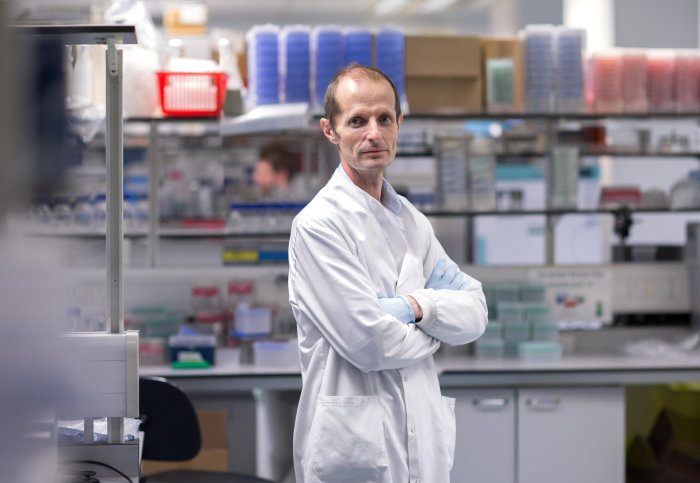Imperial researchers in race to develop a coronavirus vaccine
by Ryan O'Hare

A microbiology lab at Imperial’s St Mary’s campus is at the centre of a scientific race to develop a vaccine against a global viral outbreak.
This article was updated on 5 February 2020
Led by Professor Robin Shattock, from the Department of Infectious Disease, the Imperial team is one of only a handful of research groups in the world currently working to create a viable vaccine against the novel coronavirus.
Since emerging at the end of last year, the virus (called ‘2019-nCoV’) has spread beyond the limits of Wuhan city in China’s Hubei province, causing hundreds of deaths in China and leading to confirmed cases in 24 countries around the world – including two in the UK.
According to Professor Shattock, the difference between this vaccine effort and that of previous outbreaks, such as the SARS outbreak in 2002, is that a vaccine could potentially be produced much faster than conventional methods.
“We have the technology to develop a vaccine with a speed that’s never been realised before,” he explains.
Professor Shattock added: “We have successfully generated our novel coronavirus vaccine candidate in the lab – just 14 days from getting the genetic sequence to generating the candidate in the lab. This will go into the first animal experiments on Monday [10th February].
"If this work is successful, and if we secure further funding, the vaccine could enter into clinical studies (with human participants) in early Summer.”
Imperial’s Ryan O’Hare spoke to Professor Shattock to find out more about the virus at the centre of the outbreak and the road to developing a vaccine.
Listen to the full interview.
Article text (excluding photos or graphics) © Imperial College London.
Photos and graphics subject to third party copyright used with permission or © Imperial College London.
Reporter
Ryan O'Hare
Communications Division